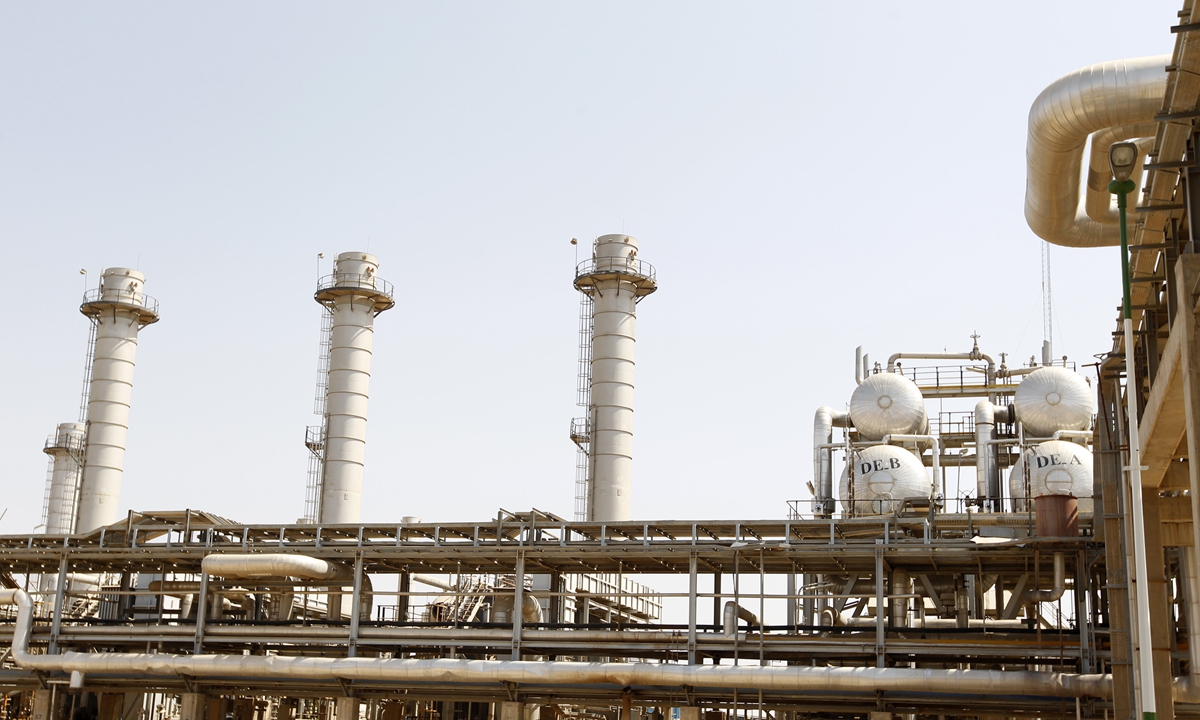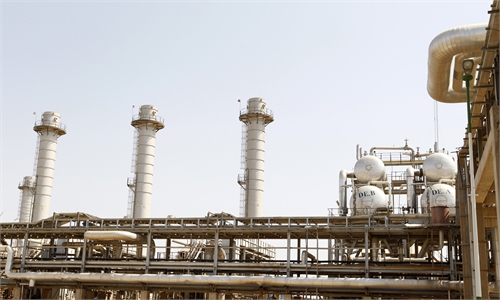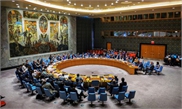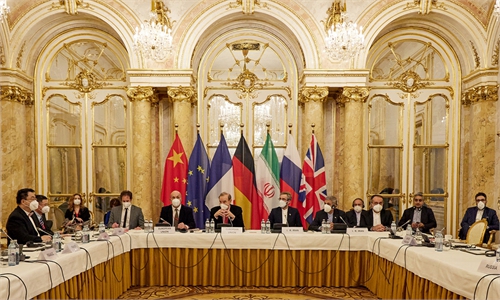
The Mahshahr Petrochemical Complex is seen in the city of Mahshar in the Khuzestan province in southwestern Iran on September 28, 2011. Photo: VCG
The eighth round of talks between six major countries and Iran on reviving the 2015 nuclear accord, known as the Joint Comprehensive Plan of Action (JCPOA), resumed in Vienna on Monday.
While observers believe that European powers will actively mediate between the US and Iran due to their significant economic and energy interests in Iran, the arrogant attitude of the US has cast a shadow of uncertainty over the talks.
As the Iranian nuclear issue has arrived at this point, all parties need to reflect on how to get rid of the US' hegemonic will. China maintains that the US must abandon illegal and unilateral sanctions and "long-arm jurisdiction" measures, and return to the right track of complying with the Iran nuclear accord and relevant UN Security Council resolutions.
Apparently, even though the Biden administration may agree that its 2018 withdrawal from the JCPOA was a flawed decision, it demands Iran play by the rules set by the US, which is a full exhibition of Washington's arrogance and power play.
The US is to blame for the mess. Its unilateral withdrawal from the JCPOA and re-imposition of stringent economic sanctions against Iran are nothing but reckless and clueless.
It is impossible for all parties to address the Iranian nuclear issue by following the hegemonic will of the US. If other parties of the nuclear accord could come up with a consensus, and the US is willing to lift harsh sanctions imposed on Iran, it will form a basis for Iran to return to full compliance with the JCPOA.
More broadly, the Iranian nuclear talks may serve as a reminder to the world that it is essential for other countries to establish a new reserve currency settlement and trading system in order to curb the unilateral sanctions freely waged by the US.
According to Iranian Foreign Minister Hossein Amirabdollahian, Iran wants all sanctions lifted so that "Iranian oil can be sold easily and without hindrance". The proceeds from oil sales can be deposited in designated Iranian banks. It reveals why the US government has, time and again, imposed long-arm jurisdiction sanctions on any country and company that the US does not like, counting on the US dollar-dominated global settlement regime.
Without the US dollar hegemony, Iran could have already returned to the JCPOA under the effort of other world powers.
Moreover, there are also fears that even if the Biden administration agrees to return to the JCPOA for the time being, a future American president led by a Republican may again abandon the pact and re-impose sanctions on Iran.
The rights and wrongs of the Iranian nuclear crisis are crystal clear to the international community. How many countries can guarantee that the difficulties faced by Iran today will not happen to them in the future? A coordinated global effort is needed by the international community to end the US dollar hegemony. It isn't easy to do, but the world should begin to think how to do it.



